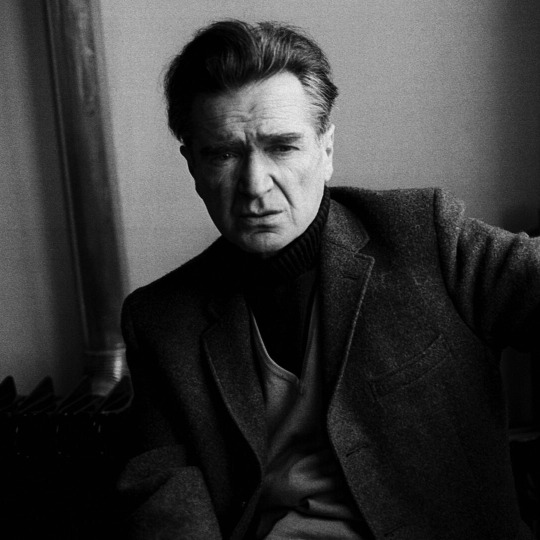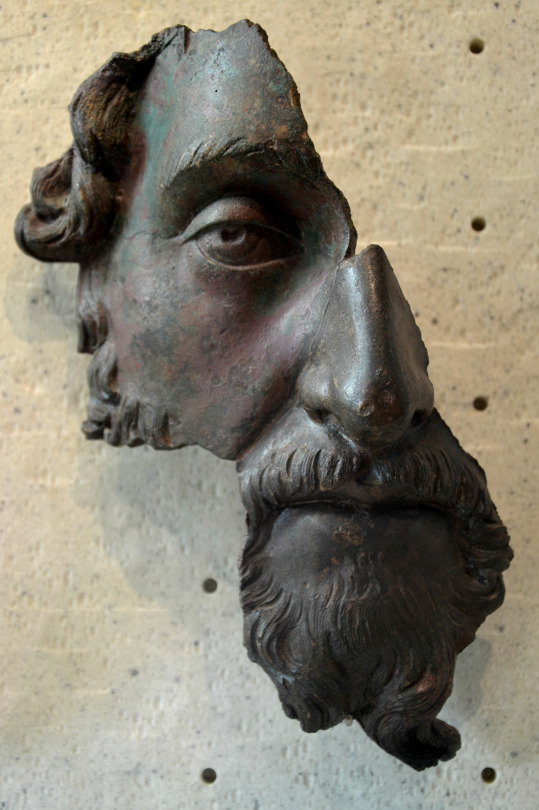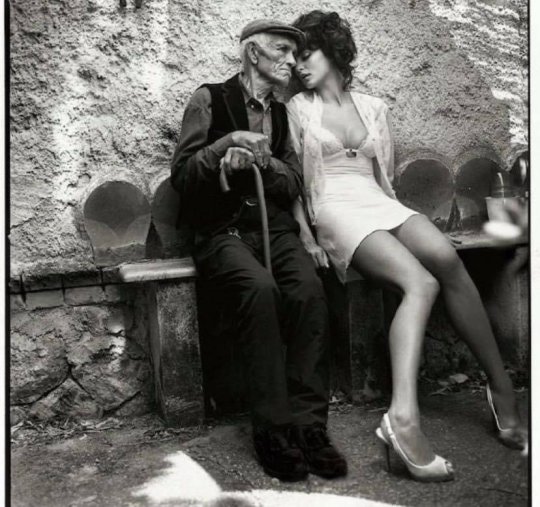#Cioran
Explore tagged Tumblr posts
Text
“Each generation raises monuments to the executioners of the one which preceded it.”
— E. M. Cioran in his essay on Napoleon, the executioner of the 18th century world. From “Ennui of Conquerors” in A Short History of Decay
#very strange essay#E. M. Cioran#Cioran#Emil Cioran#napoleon#napoleon bonaparte#quote#french literature#napoleonic era#napoleonic#first french empire#essay#frev#french revolution#la révolution française#révolution française#19th century#france#history#1800s#french empire#french#quotes#french lit#Romania#romanian
53 notes
·
View notes
Photo
Photo : © Wiktor Franko
____________
Jung (traduction) : « Enfant, je me sentais seul, et je le suis toujours, car je sais des choses et je dois faire allusion à des choses dont les autres ne savent apparemment rien et, pour la plupart, ne veulent rien savoir. »

Photo : © la-nuit-je-mens
"Des lèvres émane une douceur mortelle, qui submerge la nature, et noie dans un désespoir de paradis."
Emil Cioran, Le crépuscule des pensées, LdP p. 79

“As a child I felt myself to be alone, and I am still, because I know things and must hint at things which others apparently know nothing of, and for the most part do not want to know.” ― C.G. Jung, Memories, Dreams, Reflections
176 notes
·
View notes
Text

“He who has never envied the vegetable has missed the human drama.”
— Emil Cioran, “The Fall Into Time”
#emil cioran#cioran#literature#lit#literature lover#literature quote#literature quotes#philosophy#philosophical#philosopher#philosophers#philosophy quotes#philosophy of life#quote#quotes#excerpts#excerpt#booklover#book#bookworm#books#book quotes#book quotations
66 notes
·
View notes
Text

“In an English magazine, a diatribe against Marcus Aurelius, whom the author accuses of hypocrisy, philistinism, and posturing. Furious, I was on the verge of writing a reply when, thinking of the Emperor, I quickly got hold of myself. It was only fair that I should not yield to anger in the name of one who taught me never to yield to anger.” - Emil Cioran, ‘Drawn and Quartered’ (1979) [p. 78]
52 notes
·
View notes
Text

I don’t understand why we must do things in this world, why we must have friends and aspirations, hopes and dreams. Wouldn’t it be better to retreat to a faraway corner of the world, where all its noise and complications would be heard no more? Then we could renounce culture and ambitions; we would lose everything and gain nothing; for what is there to be gained from this world?
Emil Cioran
526 notes
·
View notes
Text
"Nous avons perdu en naissant autant que nous perdrons en mourant. Tout."
Emil Cioran, De l'inconvénient d'être né, folio p. 70

25 notes
·
View notes
Text

FAV.
#this is crazy because I was just talking to a friend about how there won't be a science of meaning#THE SYNCHRONICITY IS INSANE.#2#cioran#w
3 notes
·
View notes
Text
Gli uomini seguono soltanto chi regala loro illusioni. Non ci sono mai stati assembramenti intorno a un disilluso.
Emil Cioran
129 notes
·
View notes
Text
“Whatever his merits, a man in good health is always disappointing. Impossible to grant any credence to what he says, to regard his phrases as anything but excuses, acrobatics. The experience of the terrible - which alone confers a certain density upon our words - is what he lacks, as he lacks, too, the imagination of disaster, without which no one can communicate with those separate beings, the sick. It is true that if he possessed that experience he would no longer be in good health. Having nothing to transmit, neutral to the point of abdication, he collapses into well-being, an insignificant state of perfection, of impermeability to death as well as of inattention to oneself and to the world. As long as he remains there, he is like the objects around him; once torn from it, he opens himself to everything, knows everything: the omniscience of terror.”
E.M. Cioran, On Sickness
49 notes
·
View notes
Text
"The flesh has betrayed matter; the discomfort it feels, it endures, is its punishment. In a general way, the animate appears quite guilty with regard to the inert; life is a state of guilt, a state all the more serious in that no one is really conscious of it. But a crime coextensive with the individual, which weighs upon him without his knowledge, which is the price he must pay for his promotion to a separate existence, for the infraction committed against the undivided creation. This crime is no less real for being unconscious and is crucial to the prostration of every creature."
-- Emil Cioran, The New Gods, pg. 41
8 notes
·
View notes
Quote
To find elsewhere more reality than in oneself is to confess that we have taken the wrong road and that we deserve our downfall
Emil Cioran, The Fall Into Time
48 notes
·
View notes
Text
Je ne lutte pas contre le monde, je lutte contre une force plus grande, contre ma fatigue du monde.
Emil Cioran, Ébauches du vertige
#Cioran#Ébauches du vertige#livre#book#citation#citation française#citation en français#littérature#littérature française#essai#quote
371 notes
·
View notes
Text
Her sabah, teni solmuş bir yüzle göz göze gelirim. Ölüm, kendini tekrar eden bir tanıdık gibi, nezdimde kutsal bir alışkanlığa dönüştü. İlk başta çürümenin kokusu midemi kaldırırdı, şimdi ise ona bir tür melankoliyle yaklaşıyorum sanki her cesette kendi çözülüşümü izliyorum. Ben bir otopsiciyim. Ama aynı zamanda, bir tanığın taşıyamayacağı kadar çok gerçeği yüklenmiş bir varoluş kırıntısıyım. Tanrıyla konuşmayı çoktan bıraktım. O konuşmuyordu. Ya da benim kulaklarım ona sağır doğmuştu. Ölülerinse dilleri yoktu ama bedenleri vardı. Ve beden, Tanrıdan daha dürüst konuşur. Her göğüs kafesi bir mezar. Her kesik, saklanmış bir sırrın anahtarı. İç organlar… Her biri kendi tarihini, kendi çaresizliğini anlatır bana. Kalp durmuştur ama yaşarken neye dayanamadığını anlatır. Karaciğer çürümüştür, ama hangi alışkanlıkla öldüğünü fısıldar. Akciğer, yılların kirini hala içinde taşır. Her şeyden çok, insanın nasıl yaşadığını bedeninden öğrenirim nasıl öldüğü yalnızca son cümledir. Cioran der ki, “İnsanı kurtarabilecek tek şey kendi çöküşüdür.” Ben her gün bu çöküşün detaylarını parçalara ayırıyorum. İçinde bulunduğumuz bu devasa yalnızlık, bir bedenin iç boşluğundan farksız. Her organı yerinden söktüğümde, kendi içimdeki anlam arayışını da parçalıyorum. Her ölümde, biraz daha ölümsüzleşiyorum çünkü artık hissetmiyorum. Ve hissetmemek, Tanrının lütfu değilse nedir? İnançsızlığım bir başkaldırı değil; bir kabullenme. Varoluş, baştan aşağı bir ironi: Hayatta kalma içgüdüsüyle doğmuş bir türün, kendi yokluğuna anlam araması. Bedenin suskunluğu, bu anlamsızlığın en dürüst aynası. Bir cesedin göz çukurlarına baktığımda, orada kendi boşluğumu görürüm. Orada zamanın durduğu, arzunun söndüğü, korkunun bile anlamsızlaştığı bir evren başlar. Otopsi masası, benim mabedimdir. Üstündeki cesetler, yaşayanların günahlarından arındırılmış hâlleridir. Ne yalan söylerler, ne susar gibi yaparlar. Onlar, hakikatin donmuş halidir. Bir gün kendi bedenim de o masaya uzanacak. Belki başka bir otopsici içime bakacak. Ama o, yalnızca karaciğerimi görecek. Benim sorularımı, boşluklarımı, gece üçte uyanıp düşündüğüm saçmalıkları göremeyecek. İçimden çıkan şeyler et ve kan olacak yalnızca. Ama Tanrı orada olmayacak. Çünkü ben onu hiçbir zaman bulamadım. Ve O da bana hiçbir zaman cevap vermedi. Şimdi her yeni cesette aynı soruyu soruyorum kendime: Bu bedenin içinden çıkacak olan nedir? Bir sır mı, bir itiraf mı, yoksa yalnızca anlamsız, sessiz bir çöküş mü? Ve her seferinde aldığım cevap aynı:
Hiçlik, en dürüst teşhis. Ve ben, onun sonsuz tekrarıyım.

8 notes
·
View notes
Text

« Partout des gens qui veulent...; mascarade de pas précipités vers des buts mesquins ou mystérieux; des volontés qui se croisent ; chacun veut ; la foule veut; des milliers tendus vers je ne sais quoi. Je ne saurais les suivre, encore moins les défier; je m'arrête stupéfait : quel prodige leur insuffla tant d'entrain? »
Emil Cioran - Précis de decomposition
5 notes
·
View notes
Text
"insan, felaket salgılar"
cioran
9 notes
·
View notes
Text

Old age, after all, is merely the punishment for having lived.
Emil Cioran
#cioran#emil cioran#quote#old age#growing old#ageing#maturity#wisdom#make every moment count#beauty#life
134 notes
·
View notes
Text
The Mission in Life: Beyond a Figure, a Calling for All

Life sends us signals—some as soft as a whisper, others as loud as a storm. The passing of figures like Pope Francis shakes us, not only because he was a spiritual leader during times of crisis and change, but because his departure reminds us that we all have a mission in this life.
Francis was not a perfect man, but he was deeply devoted—to his faith, to the most vulnerable, to dialogue, and to hope. Leading an institution like the Church in such turbulent times, when truth is questioned, faith is fading, and hope feels distant, is no easy task. Yet, he did it with humility and persistence.
His death at this turning point in history should not be seen as the end of hope or as an irreplaceable loss. The mission he embodied goes beyond the individual. It is a role, a responsibility that must continue. We cannot place all our expectations in a single person, no matter how inspiring they may be. The mission of building a more humane, just, and compassionate world belongs to us all.
Perhaps the change ahead is what humanity needs. Maybe a new voice will bring a different kind of guidance, a new perspective. Or perhaps the silence left behind by a leader invites us to look inward—to discover and embrace our own purpose.
Life’s mission is not always grand or public. Sometimes, it’s raising a child with love, working with integrity, caring for the sick, writing, planting. Each of us has a task, and the time we spend on this Earth is our only true currency. Let’s not let it pass without meaning.
Today, more than ever, we are reminded that life is brief, leadership is not eternal, faith needs to be renewed, and our personal mission can and must contribute to the collective fabric of the world we hope to leave behind.
Source: The Mission in Life: Beyond a Figure, a Calling for All
0 notes